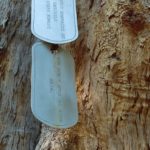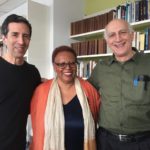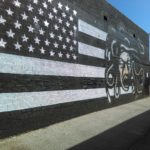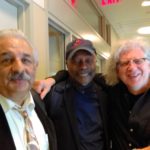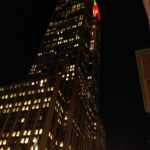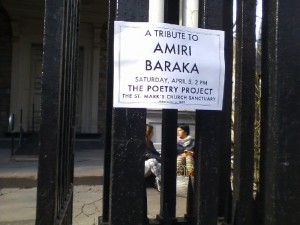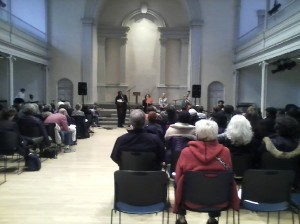Heard on NPR an Edward Hirsch’s poem read by Shaquille O’Neill that Kwame Alexander discusses early in the morning. The poem is about basketball and life and of course O’Neill would love it. It is old school, the whole setup. Populist Black American poet talkes POETRY with slightly bewildered, slightly awe-struck NPR hostesss. 50 years ago it could have been Langston Hughes chatting somebody up and say Mickey Mantle intoning Carl Sandburg. Media representation of poetry, American poetry continues this odd desire to make all things plain and clear as if the masses can’t look up a work on their dictionary.com app. Glad that O’Neill and many athletes read and write poetry. But you don’t have to be a celebrity to add value to poetry. You have to care about language, culture and the work required to make even the simplest seeming poems profound.
On Sunday, April 29, American Poets Congress presented 15 poets reading work at Poets House where Lee Briccetti noted that poets are the unelected legislators of the world, and in which each of us said our names and then I AM AN AMERICAN POET. The poets intoning are Amanda Deutch, Anne Waldman, Cecilia Vicuna, Cynthia Kraman, David Henderson, Edwin Torres, Erica Hunt, James Sherry, Michael Broder, Patricia Spears Jones, Pierre Joris, Purvi Shah, Tai Allen, Tan Lin and Vincent Katz. James Sherry, Vincent Katz and I co-curated this and what a line up.
It was our way of standing on a ground that feels like our home and not the one that is promoted out of the damaged and dangerous minds of party in political power. Poets, what can we do?
We write. We think. We ask questions. We answer them, but not often. Some questions remain unanswerable. But the questions keep us searching for that answer say to ending racism, ending injustice, promoting fairness and honesty, offering succor and candor and compassion. When do we do these things, how do we, what are the words. Working with two white men on this project was challenging to them and to me. Working with men who are use to directing ordering guiding even as they seek to be progressive and collaborative is challenging. But you know what I learned to deal with the challenges –if we are to begin to build another way of looking towards the future then working with and challenging privilege is going to be very important. Dismissing people because of their lack of political purity or their unenlightened attitudes means having to find others to replace them who may or may not be better. You don’t change unless you’re put in a situation where change has to take place or you don’t progress. Americans do not want to be seen as mean spirited, hateful, killer cops on every corner, but until Americans remove the killer cops on every corner, and stop backing mean-spirited and hateful policies, well that is what America is to most of the world right now.
But poets know this and poets write about language, how it is used, abused, trampled over, and made to build up mean spirited, hateful and poisonous policies that ultimately will make us poorer, sicker, our air and water toxic, our understanding of safety, security and defense enablers of militaristic fantasies. Yup, this is a bad era for Americans, for the world given the drift to the right.
But poets being poets keep language alive. We keep making those questions, whether we are bards or beats or Black Arts devotees, we know that every phrase that damage, the psyche, scars the culture must be overmatched with language that heals, that thrills that poses a fresh way of seeing and being.
POETS ARE THE BEST, but I would say that because I am a poet and this is the last day of National Poetry Month. And it is great to know that whether you’re Black White, HIV negative or positive, Asian, Latinx, Native, queer, gender nonconforming, lover of animals or only lover of flowers or you speak 5 languages or only one-if you still work language to find the truth there in, I SALUTE YOU. Oh and we can write about basketball, drone warfare, police brutality, love affairs, sleepy Sundays, capitalism, poverty, music, tea, the genome, etc. If there are words, there is poetry.
